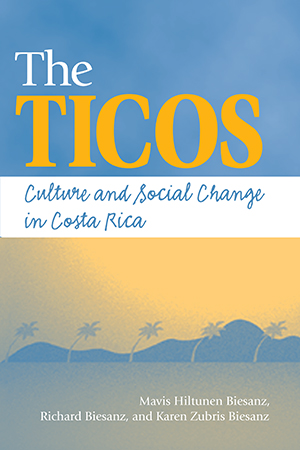
- 1999/307 pages
The Ticos:
Culture and Social Change in Costa Rica
This unparalleled social and cultural history traces the development of Costa Rica's culture and institutions.
With the perspective of more than half a century of first-hand observation, the Biesanzes describe how Costa Rica's economy, government, educational and health-care systems, family structures, religion, and other institutions have evolved, and how this evolution has affected—and reflected—people's daily lives, their beliefs, and their values. They are particularly concerned with change and continuity since the economic crisis of the early 1980s and the structural adjustment that followed.
The economic policies of the past decade have resulted in a wider gap between rich and poor in the country, a middle class struggling to maintain status, and a growing sense of frustration and resentment. There is also a widespread fear of a loss of national sovereignty and cultural identity under the pressure of external demands and the impact of foreign goods and mass media. Nevertheless, though Tico society certainly has been affected by these changes, the authors find that the response to change has been shaped by a deep-rooted culture. Despite the popularity of many elements of foreign influence, they find even more evidence of the continuity of a cultural core.
Providing a comprehensive introduction to a country they know well, the authors also contribute astutely to an understanding of the reciprocal influence of structural adjustment and national culture.







